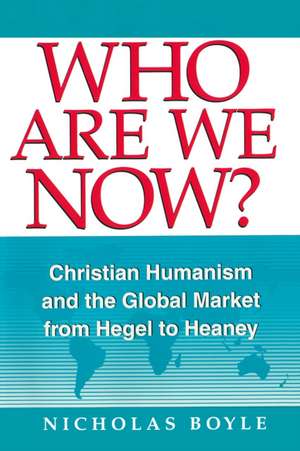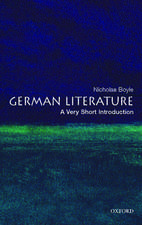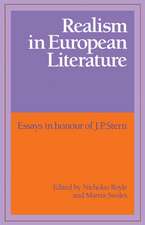Who Are We Now? – Christian Humanism and the Global Market from Hegel to Heaney
Autor Nicholas Boyleen Limba Engleză Paperback – 14 noi 1997
Preț: 278.67 lei
Nou
Puncte Express: 418
Preț estimativ în valută:
53.34€ • 57.96$ • 44.83£
53.34€ • 57.96$ • 44.83£
Carte tipărită la comandă
Livrare economică 21 aprilie-05 mai
Preluare comenzi: 021 569.72.76
Specificații
ISBN-13: 9780268019587
ISBN-10: 0268019584
Pagini: 360
Dimensiuni: 150 x 250 x 15 mm
Greutate: 0.48 kg
Ediția:1
Editura: Wiley
ISBN-10: 0268019584
Pagini: 360
Dimensiuni: 150 x 250 x 15 mm
Greutate: 0.48 kg
Ediția:1
Editura: Wiley
Recenzii
“A readable, original work on a globally important subject.” -Karl E. Meyer
“[T]his book is one of the most challenging to theology that I have read in recent years. I recommend it without reservation as an excellent starting-point for what needs to be an essential part of the contemporary discussion.”
-Gareth Jones, The Expository Times
-Gareth Jones, The Expository Times
“[A] Christian tract for our times in the best traditions of Newman, Chesterton, or T. S. Eliot. In Who Are We Now? Christian Humanism and the Global Market from Hegel to Heaney, Dr. Boyle analyses the revolutionary impact of globalisation, and he devotes several essays to explaining how we got here—as invisibly erudite a brief intellectual history of the West as I have ever read.” -The Times (London)
“Boyle’s argument for a deep interconnectedness of politics, religion, philosophy and literature, and their shared inseparability from the economic base, is appealing. Boyle has produced a book full of perceptive insight and important challenge that deserves to be widely read.” —Theological Book Review, No.3, Vol. 11, June 1999.
“The journey from political paradoxes to Christian poetry that Boyle has unveiled is illuminating. [T]his is a book of extraoridinary substance for theologians interested in surviving postmodernity.” — Teaching Theology and Religion
Notă biografică
Nicholas Boyle is a Fellow at Magdalene College and a Reader in German Literary and Intellectual History at Cambridge University.
Descriere
Studies the implications of the increasingly integrated world economic structure for our sense of political, cultural and personal identity. The book argues for the interconnectedness of politics, religion, philosophy and literature and their shared inseparability from the economic base.


